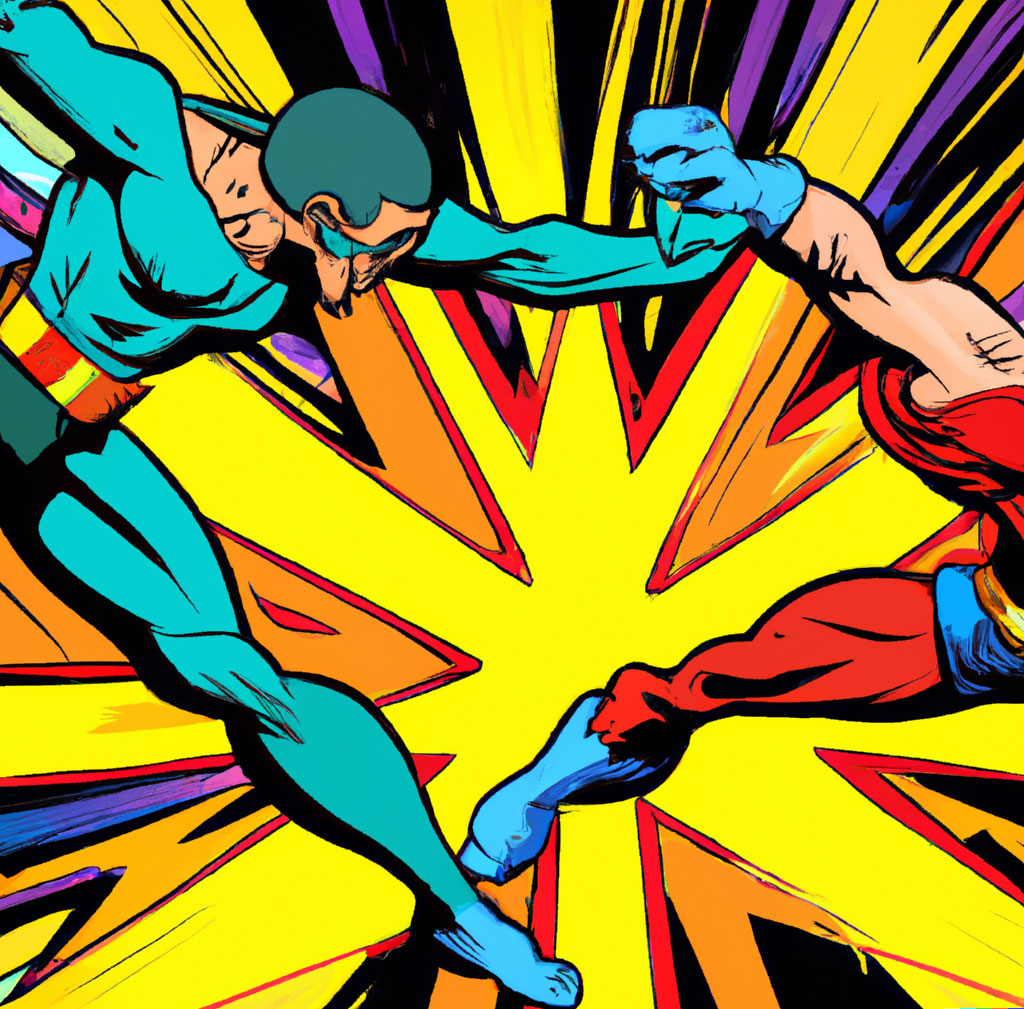Which AI is the most helpful: ChatGPT, Bing, or Google Bard to make my favorite cocktail?
I’m taking a break from my SEO posts to embrace the monster that is AI and put it to the real test… Drinking.
Here’s a breakdown of how ChatGPT compares to Microsoft’s Bing and Google’s Bard.
With the launch of ChatGPT late last year, it gained immediate and widespread attention for providing an AI engine that is free for everyone. Anyone could type in their query and ChatGPT would respond in minutes. From writing an essay on the First Crusade to writing a poem about my love of pizza, ChatGPT would spit out answers in a way Google or Bing could never.
Traditional search engines provide a list of websites that most closely match a person’s query, but ChatGPT provides people with the answer by using a large language model (LLM) to create sentences that mimic human responses by analyzing large amounts of data. Grammerly on steroids, it’s been described.
In January, ChatGPT had an estimated 100 million active users, making it the fastest-growing web platform ever. This pushed both Microsoft and Google into a high gear. As soon as Microsoft’s Bing adopted ChatGPT, it integrated AI into search. Microsoft actually licenses the GPT technology from OpenAI into Bing, resulting in a nearly 16% increase in traffic.
As well as Microsoft Word, Excel and PowerPoint, Google’s Workspace tools like Gmail and Docs, Snapchat, writing assistant Grammarly and WhatsApp have also embraced artificial intelligence.
Even so, AI chatbots aren’t all created equal. For my semi-scientific test, I compared responses from ChatGPT’s paid version, which uses GPT-4 (versus 3.5 for the free version), as well as responses from Bing-integrated ChatGPT and Google’s own Bard AI system. As a matter of fact, GPT stands for “generative pretrained transformer.” Bard is currently in beta, while Bing can be used for free but requires Edge.
Disclosure: I was on the beta team for ChatGPT since 2020, but I am writing with an open mind and heart. I’m AI agnostic, or, whoever has a better mousetrap, I’ll be there.
Differences in AI Technology
While Bard, Bing and ChatGPT all aim to give humanlike answers to questions, each performs differently. Bing starts with the same GPT-4 tech as ChatGPT but goes beyond text and can generate images. Google’s own model, called LaMDA, often gives responses that are less text-heavy. The bard bot, according to Sundar Pichai, will be switching over to PaLM, a more advanced dataset, soon. (All three bots can sometimes make factual errors, but Bard was the least reliable.)
Although both ChatGPT and Bing involve the same technology, it won’t result in the same outcome when you enter the same query. The difference is due to generative Artificial Intelligence (AI) as opposed to a typical search engine which works by presenting the most pertinent links. AI chatbots generate new text from its datasets, thus if you were to ask for a poem about Bigfoot’s favorite movie twice, you’d get different answers each time. Moreover, Bing also puts its own twist on GPT-4 so that itself could be an explanation on why putting in a similar question in both platforms will give you varying results.
Microsoft has developed proprietary ways to work with OpenAI that allow us to maximize its potential. We call these capabilities and techniques the Prometheus Model.
The Prometheus Model interestingly fuses Bing’s search index with GPT-4, supplying up-to-date data that ChatGPT’s dataset can’t compete with, which only contains facts until 2021. With Bing, people can tailor conversation styles to fit between balanced, creative and precise. Bing also leverages Microsoft’s Azure AI supercomputer capabilities to integrate search, chat and the Edge browser.
Measuring What I Actually Care About
Recipes are boring and I drink more than I bake, so how about an Old Fashioned Cocktail.
In comparison with the other two chatbots, ChatGPT was the most verbose. In the recipe, the ingredients we right, but the system failed to capture the more recent trend (after 2021) of smoking the glass.
The ingredient list on Bing was the shortest, but did give me the smoke as an option for garnishment.
Google’s Bard didn’t give the smoke option, but did include tips to make a better drink. “Don’t over-muddle the sugar cube. You want to dissolve it, but you don’t want to crush it into a powder.“
Ok, I’ve got my drink on, I want to impress that girl sitting at the bar, so how about a poem?
It’s fascinating to see chatbots create rhymes and meter in real time when you give them ridiculous prompts.
In comparison to Bing, Bard, and ChatGPT, ChatGPT is the best poet. The prose of ChatGPT is richer, and the rhymes and wording are also more creative. While Bing and Bard’s poems came across as lazy, ChatGPT created something that felt like each stanza had been given some thought.
It is intended to be both funny and self-revelational, in which a poet realizes they aren’t all that important, when given this prompt. Only ChatGPT managed to get to the crux of the existential crisis facing this fictional influencer — and still managed to end it on a positive note.
Interestingly, Bing allows people to scale the level of creativity. When Bing was set to “balanced” mode, the poem felt stale and unremarkable. When set to “creative” mode, the poem felt more flowery and less stodgy. It was closer to ChatGPT than ChatGPT, but still not there.
By comparison, Bard’s poem seemed lazy. Many words were repeated and rhyme and meter were neglected.
ChatGPT won this exercise.
For Now…
It’s going to be some time before AI takes our jobs, and exterminates human-kind, so it’s not yet the boogy man that the media or some politicians are making it out to be for views or votes.
However, it’s here to stay and it’s actually great to see competition create energy for use cases around AI.
ChatGPT — the paid version — is currently the best chatbot out there right now. It gives verbose answers that feel more humanlike than those of Bing and especially Bard. But these products are constantly evolving. As Google, Microsoft, and OpenAI feed their AIs more data and continue to tweak, we should see improvements.
As new developments come, we will update this guide accordingly. Google stands to gain the most from switching from LaMDA to PaLM.
Keep using ChatGPT until then.
P.S. – the blog post image was created with Dall-E2 and used the prompt “photo of an alcoholic cocktail named the old-fashioned on a wooden bar. photorealistic, 8k, hyper-detailed, photorealistic”




